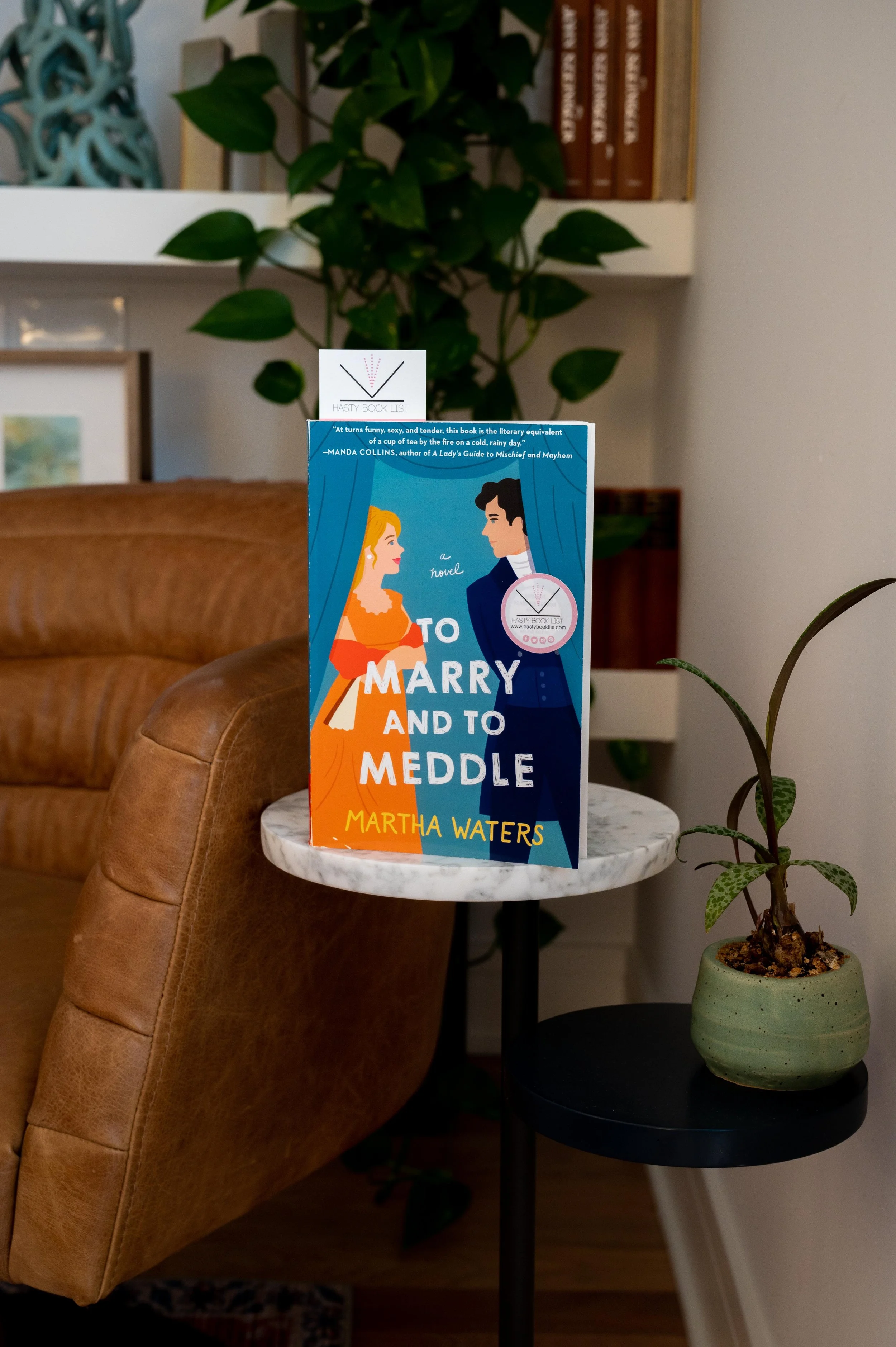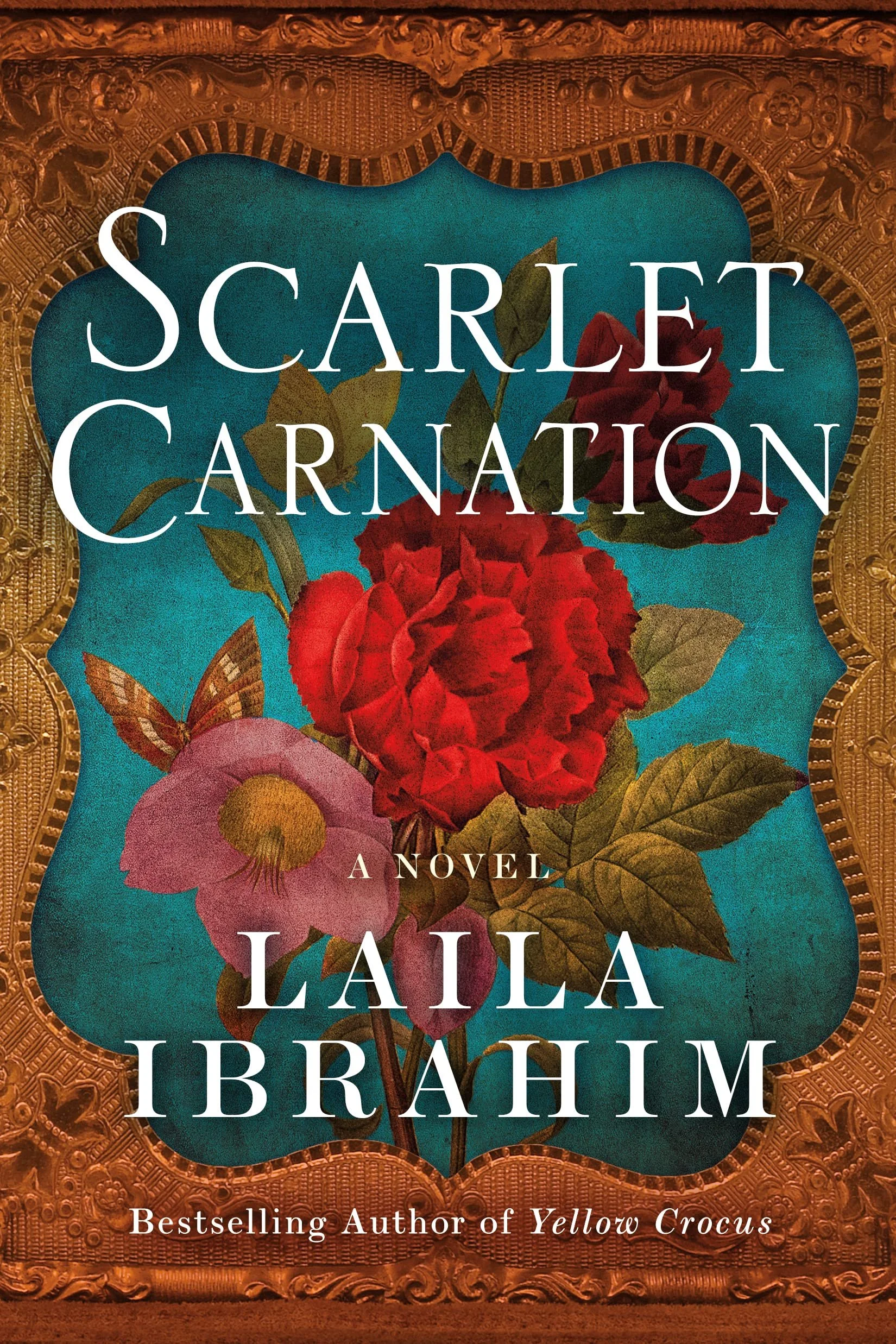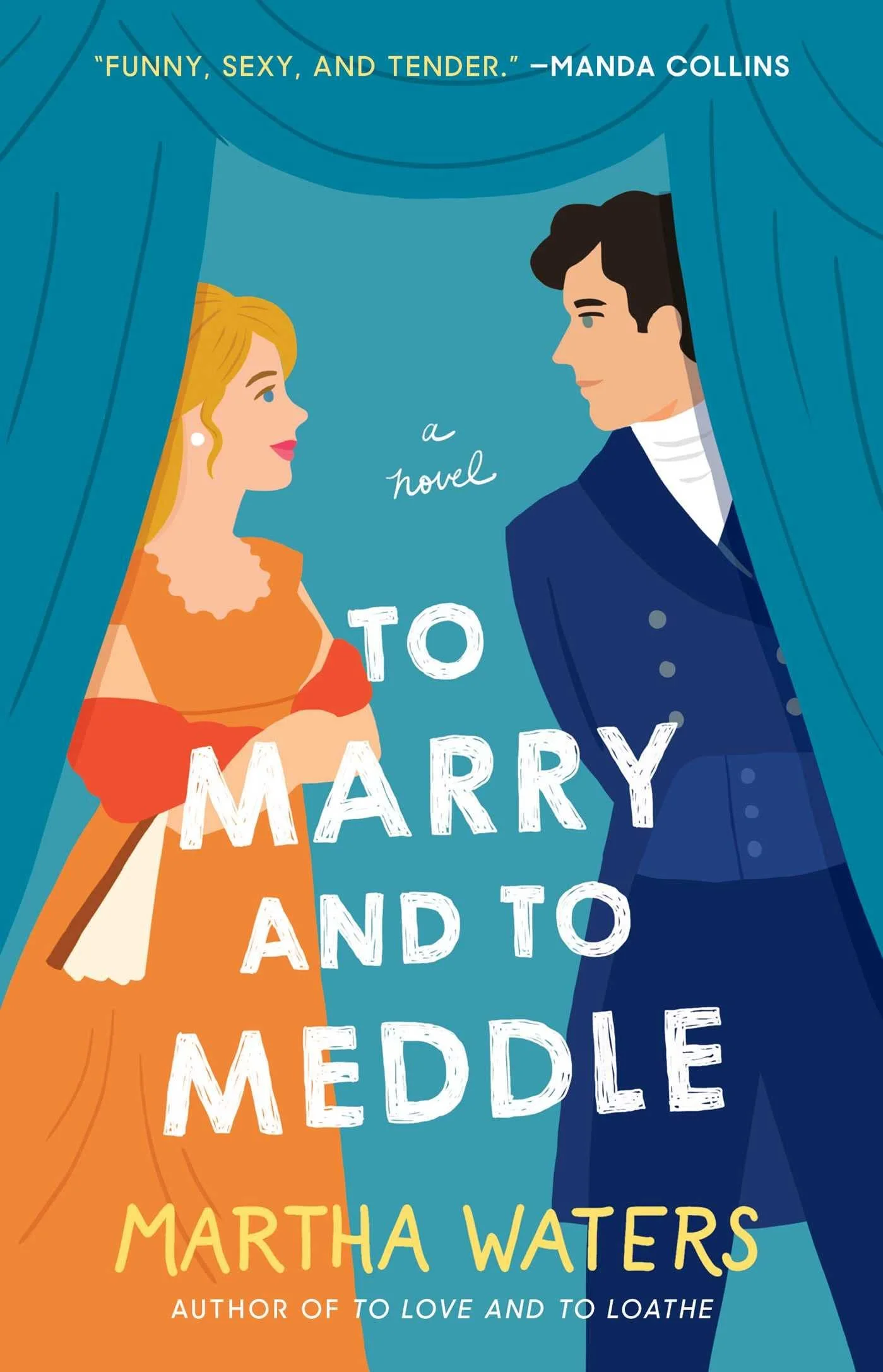To Marry and to Meddle
Preview of To Marry and to Meddle by Martha Waters
Prologue Prologue
London, 1813
In retrospect, things might have gone better if Julian hadn’t been drunk.
Oh, he wasn’t well and truly foxed; it was, after all, midmorning, and he’d been able to catch at least a few hours of sleep in the wake of a round of energetic if ultimately uninspiring bedsport, so he was reasonably coherent. But he was quite certain that there was still a fair amount of brandy sloshing around in his head, which might explain why it took him several repetitions to understand his father’s demand.
“I want you to sell the Belfry.”
An incredulous laugh escaped Julian, causing the lines on his father’s face to deepen. They were in the study of Julian’s recently purchased home on Duke Street—one of the only rooms in the house, in fact, that was fully furnished and decorated. There was an empty drawing room, and a dining room with only half the chairs that the table required, but at least this room offered him a quiet, peaceful place to retreat, to read, to attend to his correspondence.
At the moment, however, it was not feeling terribly quiet or peaceful—not with his father seated on the opposite side of his desk, frowning at him in that way he had done since Julian was a boy. The frown indicated severe displeasure with whatever happened to be Julian’s latest indiscretion (these had ranged from being sent down from Eton for distributing lewd pamphlets—twice—to attempting to elope with the stablemaster’s daughter, to name a couple).
Today, though, Julian wasn’t even certain he knew what specific indiscretion had prompted this rather extraordinary demand, so he merely said, “You cannot be serious.”
“I assure you, I am.” His father, the Marquess of Eastvale, was a handsome man in his mid-fifties, his dark hair liberally streaked with gray, his blue eyes an identical shade to those of all three of his children. Those blue eyes currently regarded his youngest son with displeasure. “You’ve had your fun—and, in truth, you’ve turned the Belfry into a more profitable establishment than I would have thought possible when you purchased it. But enough is enough.”
The Belfry was Julian’s theater, purchased in a fit of youthful impetuousness (fueled by more than one bottle of brandy) five years earlier, when he’d finished at Oxford. At the time, it had been a derelict building with an appalling reputation, employing a company of actors whose enthusiasm vastly outstripped their talent. Julian—being a second son, and therefore mercifully free of the responsibilities that plagued his elder brother Robert—had hired a manager, invested a sizable portion of his inheritance in restoring the building, and then sat back and watched the gentlemen of the ton flood through the doors. Occasionally, when the fancy struck him, he went so far as to appear onstage himself, which had the added benefit of scandalizing the mamas of the ton sufficiently to prevent them from flinging their eligible daughters at him.
The venture had, in other words, overall proved to Julian to be entirely satisfactory. The tic in his father’s jaw at the moment, however, indicated that he might feel otherwise.
“Your sister is about to make her debut into society,” his father continued, leaning forward to rest an arm on the desk, tapping the wood with an index finger for emphasis. “The Belfry has been subject to more and more gossip of late—as has your ridiculous insistence on appearing onstage from time to time—and whilst your mother and I have been more than tolerant of this little lark of yours, we’re not prepared to allow any gossip surrounding you to ruin your sister’s chances.”
Julian stiffened at those words: this little lark. He had always known, on some level, that this was how his parents viewed the Belfry—indeed, he’d initially had cause to be grateful for this fact, since it prevented them from getting too worked up when informed of its purchase. But now he bristled to hear it described so dismissively.
“The Belfry is my business, Father,” he said, taking care to enunciate, as he always did when he was a bit the worse for drink. He spared a moment to cast a dark thought at the Julian of twelve hours earlier, who had cheerfully consumed “just one more glass” for several hours running. Had he realized he’d be meeting with his father—and therefore needing all of his wits about him—he certainly would have gone to bed sometime before dawn.
“The Belfry is turning into little more than a brothel, Julian,” his father shot back.
“That’s hardly a fair—”
“The Duke of Wildermere cavorting with an Italian opera singer in plain sight—not even in the privacy of a box,” his father interrupted. “Lord Henry Cavendish reportedly appearing with a set of triplets—”
“They were twins,” Julian said wearily. “The third lady was their cousin, I believe—they all evidently found it amusing that she resembles the other two so strongly.”
“Oh, of course,” the marquess said politely. “Then in that case, there was nothing at all untoward about the fact that he was seen kissing all three of them at various intervals throughout the evening.”
Julian sighed. “I’ll grant you, we’ve attracted our fair share of rowdy behavior—but that’s why the gentlemen like it, don’t you see? A place they can come with their mistresses, where there’s no danger of running into friends of their wives?”
“I understand that it’s a profitable venture,” his father continued, and Julian momentarily brightened—perhaps this entire conversation could be wrapped up neatly, and he could see himself back to bed—“which is why I’ve no qualms about asking you to sell it.”
“Father—”
“You’ve made a tidy profit already—more than recouped your initial investment, I should think. So there’s no reason not to sell it now, and find some way to occupy your time that doesn’t threaten your sister’s matrimonial prospects.”
“Frannie is going to be the most beautiful debutante of her year,” Julian said quite truthfully. Eight years his junior, and now eighteen, his sister Frances was about to make her curtsey before the queen. Given her beauty—and the size of her dowry—he was not losing much sleep about any harm to her reputation a slightly scandalous brother might cause. “And furthermore, she’s the daughter of a marquess who also happens to be one of the most respected men in England. I hardly think she’ll be lacking in suitors.”
“Julian, you seem to misunderstand the conversation we are having,” his father said pleasantly. “I am not making a request—I am telling you that you will sell the Belfry.”
“And what occupation do you have in mind for me, then?” Julian asked. “I’m a second son, in case you’ve forgotten—I’ll need one.” This was not entirely true—he had a sizable inheritance from a great-aunt who’d had an inexplicable fondness for her scapegrace of a nephew; furthermore, any profit he saw from selling the theater would likely have been sufficient to support him for years.
But Julian didn’t want to become an idle gentleman of the ton, spending his days reading newspapers at White’s and discussing horseflesh at Tattersall’s. While he’d had enough good sense to immediately hire a manager upon acquiring the Belfry, he still enjoyed maintaining an active role at the theater, giving his days some shape, lending himself some sense of purpose.
His father, however, was unmoved. “The clergy. The army.”
Julian snorted. “The clergy would sooner have Lucifer himself in their service.”
“And who can blame them?” the marquess muttered. “But I’d imagine His Majesty’s army would be more than grateful for another officer in the fight against the French.”
Julian stared at his father in disbelief. “You can’t possibly think I’d make a suitable soldier. I’ve never willingly woken before noon.”
“There’s a first time for everything,” the marquess said icily. “And if it kept you respectable enough to allow your sister to be married someday—and you as well, for that matter—I’d say it would be a sacrifice well worth making.”
“Who said anything about my marriage?” Julian sputtered; this conversation, with its suggestions of the military—and matrimony!—was taking a decidedly dark turn.
“I’m not suggesting you book St. George’s for next week,” his father said calmly, “but it’s something worth considering.”
“This is absurd,” Julian said. “I’ve no intention of marrying for another decade, and in the meantime, I don’t see why I can’t follow my own pursuits, if I’ve the funds to do so.” While some small part of him, easily ignored, whispered that his father did have a point—that the Belfry’s reputation, which Julian had always found somewhat entertaining, was truly becoming quite sordid indeed—this quiet voice was drowned out by the irritation coursing through him.
After all, why shouldn’t he enjoy himself, with his own money, doing as he wished? If this conversation were anything to judge by, his father’s plans for his future were nothing that Julian wanted any part of.
“Because your behavior reflects not just on yourself, but on this entire family,” his father said coldly, his voice gone quiet—always a dangerous sign. “And I will not have you disgracing us.”
Julian had to resist the urge to flinch. Disgrace. He didn’t know why the word should land so sharply, but he felt it deep in his chest. He’d spent much of his adolescence and university years being something of a trial to his parents, and particularly to his father, who always seemed to require a great deal of patience when it came to accepting the fact that his youngest son was not at all like his father or brother. His purchase of the Belfry had merely been the latest in a yearslong series of antics that made his parents sigh and shake their heads.
But he realized, in that moment, that his father, while certainly disapproving of plenty of the trouble he’d gotten into over the years, had never once made Julian feel as though he were truly ashamed or embarrassed by him.
Until now.
“Is that what I am to you, then?” he asked, leaning forward in his seat, his eyes locked onto his father’s. “A disgrace? An embarrassment?” As he spoke, Julian felt as though he were unleashing a torrent of pent-up feeling, long unspoken. Had he not for years always wondered in the back of his mind if his father loved him as much as he loved Robert—if he truly loved his roguish second son, unable to resist the opportunity to cause trouble whenever it arose?
“You are my son,” his father said, his own gaze unwavering. “And as your father, I am informing you that you’ll sell the Belfry—or you won’t see another penny from me.”
“Fine,” Julian said, his head beginning to pound, anger and brandy proving to be an unpleasant combination. “I don’t need your money, Father—I’ve plenty of my own.” He rose, and crossed the room to open the door. “Bramble can see you out.”
“Julian,” his father said, rising to his feet, then pausing, surveying his son. “I’ve humored you in your antics for years,” he continued, his voice even. “A boy has to sow a few wild oats, after all. But I refuse to allow you to drag this family into scandal, and if you disobey me now, you’ll not set foot through the doors of my house again until you’ve made things right.”
This threat should have stopped Julian, or at least given him a moment’s pause; the marquess was not a man to make threats of any sort lightly, and particularly not toward one of his own children.
But Julian was past such concerns. At the moment, he was consumed by a reckless, overpowering urge to show his father that he was his own man, someone to be treated as an equal, taken seriously, no matter what the cost of his actions.
“If you think I’m disgracing the family, then perhaps that’s for the best. But I promise you that I can do much worse,” he said, his voice soft.
“You’ll know where to find me when you change your mind,” his father said, his voice tight, as he passed through the doorway to the corridor where Julian’s butler was waiting to show him out.
“I could say the same to you, Father,” Julian replied. “The doors of the Belfry are always open to you, of course.”
But it would prove to be quite some time before his father took him up on that offer.
Preview of To Marry and to Meddle by Martha Waters





